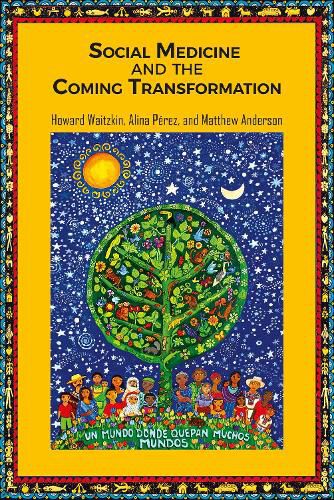Readings Newsletter
Become a Readings Member to make your shopping experience even easier.
Sign in or sign up for free!
You’re not far away from qualifying for FREE standard shipping within Australia
You’ve qualified for FREE standard shipping within Australia
The cart is loading…






Social medicine, starting two centuries ago, has shown that social conditions affect health and illness more than biology does, and social change affects the outcomes of health and illness more than health services do. Understanding and exposing sickness-generating structures in society helps us change them.
This first book providing a critical introduction to social medicine sheds light on an increasingly important field. The authors draw on examples worldwide to show how principles based on solidarity and mutual aid have enabled people to participate collaboratively to construct health-promoting social conditions. The book offers vital information and analysis to enhance our understanding regarding the promotion of health through social and individual means; the micro-politics of medical encounters; the social determination of illness; the influences of racism, class, gender, and ethnicity on health; health and empire; and health praxis, reform, and sociomedical activism. Illustrations are included throughout the book to convey these key themes and important issues, as well as on Routledge’s webpage for the book, under the Support Materials tab.
The authors offer compelling ways to understand and to change the social dimensions of health and health care. Students, teachers, practitioners, activists, policy makers, and people concerned about health and health care will value this book, which goes beyond the usual approaches of texts in public health, medical sociology, health economics, and health policy.
$9.00 standard shipping within Australia
FREE standard shipping within Australia for orders over $100.00
Express & International shipping calculated at checkout
Social medicine, starting two centuries ago, has shown that social conditions affect health and illness more than biology does, and social change affects the outcomes of health and illness more than health services do. Understanding and exposing sickness-generating structures in society helps us change them.
This first book providing a critical introduction to social medicine sheds light on an increasingly important field. The authors draw on examples worldwide to show how principles based on solidarity and mutual aid have enabled people to participate collaboratively to construct health-promoting social conditions. The book offers vital information and analysis to enhance our understanding regarding the promotion of health through social and individual means; the micro-politics of medical encounters; the social determination of illness; the influences of racism, class, gender, and ethnicity on health; health and empire; and health praxis, reform, and sociomedical activism. Illustrations are included throughout the book to convey these key themes and important issues, as well as on Routledge’s webpage for the book, under the Support Materials tab.
The authors offer compelling ways to understand and to change the social dimensions of health and health care. Students, teachers, practitioners, activists, policy makers, and people concerned about health and health care will value this book, which goes beyond the usual approaches of texts in public health, medical sociology, health economics, and health policy.